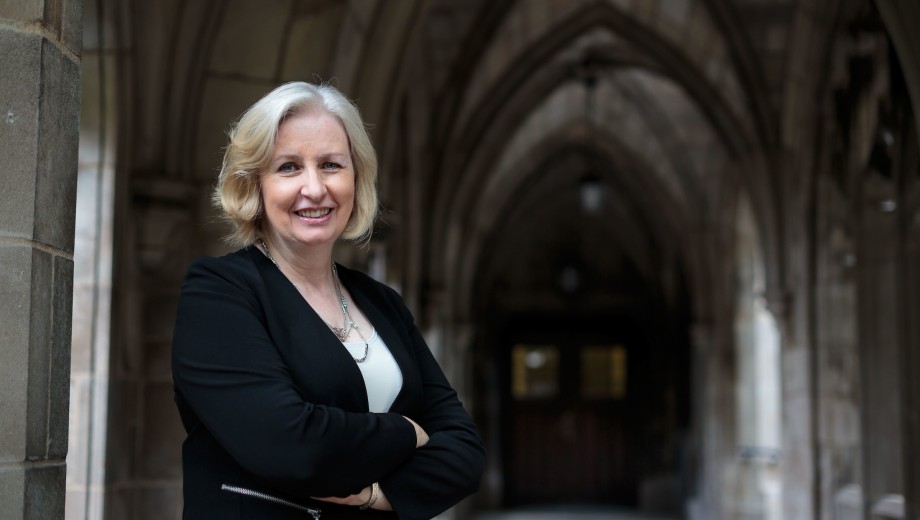Dear Alumni and Friends,
The University of Chicago Campaign: Inquiry and Impact, which ended on December 31, 2019, exceeded all expectations. We thank you, our generous friends. The Division of the Humanities raised $148.1 million, surpassing its original goal of $130 million, as well as its revised and expanded goal of $140 million.
Your support has provided our community with opportunities that have immeasurably enriched the division, including professorships, increased funds for teaching and research, high-profile lectures, and exciting additions to our arts offerings. Because of the campaign, the Randy L. and Melvin R. Berlin Family Lectures are able to bring distinguished artists, writers, and scholars to campus, elucidating fascinating contemporary literature, artwork, and architecture. The Joyce Z. and Jacob Greenberg Center for Jewish Studies continues the legacy of the University’s first president, Hebrew bible specialist William Rainey Harper, by underwriting visiting scholars and lectures on Jewish history and culture.
Likewise, the Wilhelm von Humboldt Performance Fund promises intriguing annual concerts to rival this year’s inaugural recital by piano duo Yaara Tal and Andreas Groethuysen. The Humanities Teaching Fellows program gives our new PhDs time to emerge from their dissertations, launch their initial publications, and burnish their teaching credentials.
The Chicago Center for Contemporary Composition (CCCC), the Center for the Art of East Asia, and the Franke Institute for the Humanities continue as indispensable crucibles for critical scholarly interaction, and our research funds have sent students and faculty worldwide to pursue their primary scholarship.
A few examples will put a face to the impact of your philanthropy. While familiar accounts of the Dreyfus affair have focused on the political and anti-Semitic aspects of the case, Orit Bashkin (Near Eastern Languages and Civilizations) is rewriting the story to take into consideration a broader range of religious perspectives—Muslim and Christian, as well as Jewish. Similarly, Alain Bresson (Classics) is employing digital technologies in his study of currencies in the ancient world. Through a database that connects early texts on trade to ideas about how coins circulated, Bresson uses 3D modeling to illuminate the oldest economies, connecting the humanities and the social sciences.
Our graduate students have likewise benefited enormously from the campaign. The marvelous Grossman Ensemble of the CCCC performed the works of student composers David “Clay” Mettens and Will Myers. Through its commitment to high-caliber performances, the ensemble provides our students with multiple rehearsals and sustained interaction with performers. These features of the CCCC, so essential to helping our young composers establish themselves, are rare in the performing arts world.
I hope illustrating the variety and scope of research and creative work of my colleagues will explain why we are so grateful for your support. As we enter the postcampaign period, I want to ensure that we preserve our distinctive brand of inquiry and impact in the Division of the Humanities. I count myself fortunate to collaborate with you in this effort.
Anne Walters Robertson
Dean, Division of the Humanities
Claire Dux Swift Distinguished Service Professor, Department of Music
P.S. As this issue was going to press, the coronavirus was creating uncertainty in many aspects of our lives and work. I hope that you and your family are safe and healthy.

